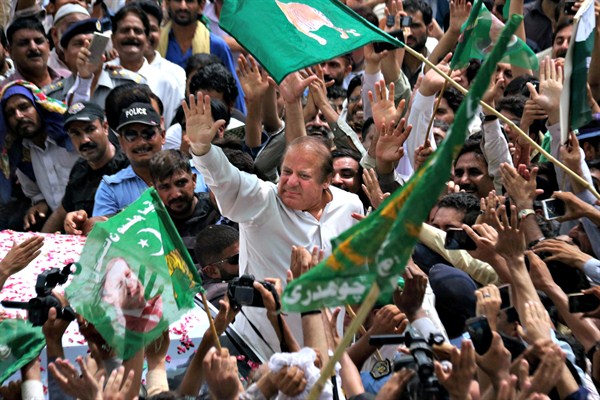On July 28, Pakistan’s highest court ruled that corruption allegations disqualified Prime Minister Nawaz Sharif from serving in office, forcing him to resign. The ruling party, the Pakistan Muslim League-Nawaz (PML-N), quickly announced a succession plan: Shahid Khaqan Abbasi, a close Sharif ally, would be appointed prime minister until a successor was found to serve out Sharif’s term, which ends next year. After winning a parliamentary by-election—a formality in a PML-N-dominated legislature—Abbasi took office on Aug. 1. Soon after, the government announced that Abbasi himself would serve out Sharif’s term.
Initially, all seemed to be going swimmingly with the transition. But this is Pakistan, where politics are never tame. And sure enough, political tensions are already intensifying.
Sharif has put the country on notice that he will not go quietly into the night. Several days after his ouster, he revealed his plans to leave Pakistan’s capital, Islamabad, and return home to Lahore, the capital of Punjab province. It would be no somber retreat by a fallen leader, but rather a public and defiant procession, with many mass rallies along the way.

